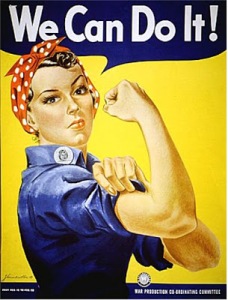International Women’s Day (IWD), also called International Working Women’s Day, is celebrated on March 8 every year. In different regions the focus of the celebrations ranges from general celebration of respect, appreciation and love towards women to a celebration for women’s economic, political, and social achievements. Started as a Socialist political event, the holiday blended in the culture of many countries, primarily in Europe, including Russia. In some regions, the day lost its political flavor, and became simply an occasion for men to express their love for women in a way somewhat similar to a mixture of Mother’s Day and Valentine’s Day. In other regions, however, the political and human rights theme designated by the United Nations runs strong, and political and social awareness of the struggles of women worldwide are brought out and examined in a hopeful manner. This is a day which some people celebrate by wearing purple ribbons.
The reason why the 8th of March was chosen for this celebration is not very clear but two important events were probably the basis for choosing this date. Both events took place in New York. The first one was a big rally by textile women workers in 1857. Thousands of women marched to the rich areas of the city to protest against their miserable conditions. The second event took place in 1908. That year, 40,000 women workers in the textile industry went on strike to demand the right to unionisation, higher salaries, less working hours, vocational training and banning of child labour. During those strikes, 129 women workers died in the fire of their factory, the Cotton Textile Factory, in Washington Square. The bosses had locked up their workers in we factory to oblige them work and prevent them from going on strike. These two events are said to have occurred around March 8th.
SOURCE: WIKIPEDIA







